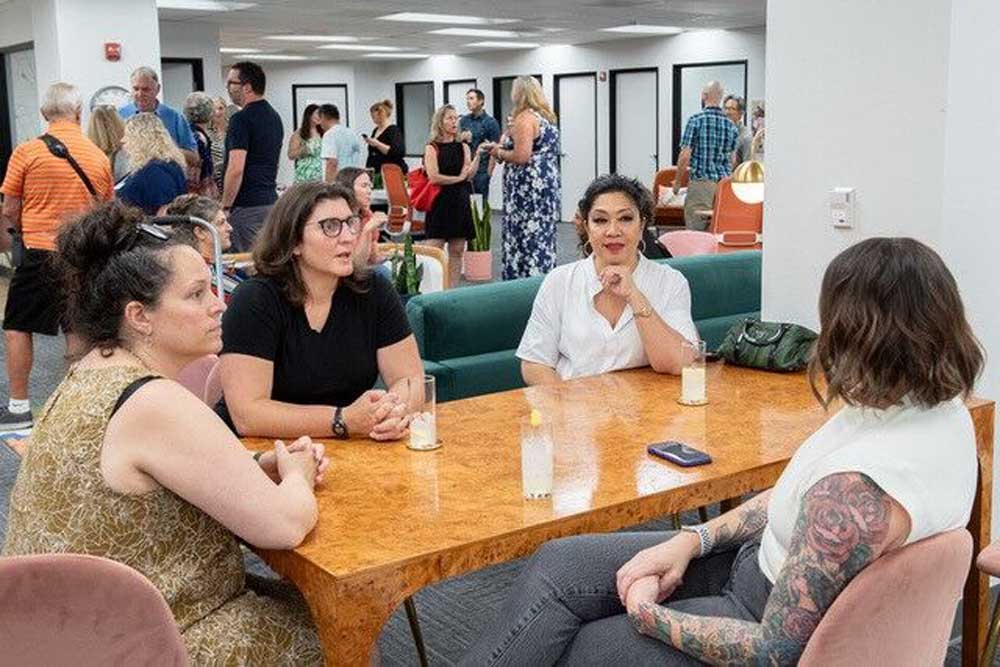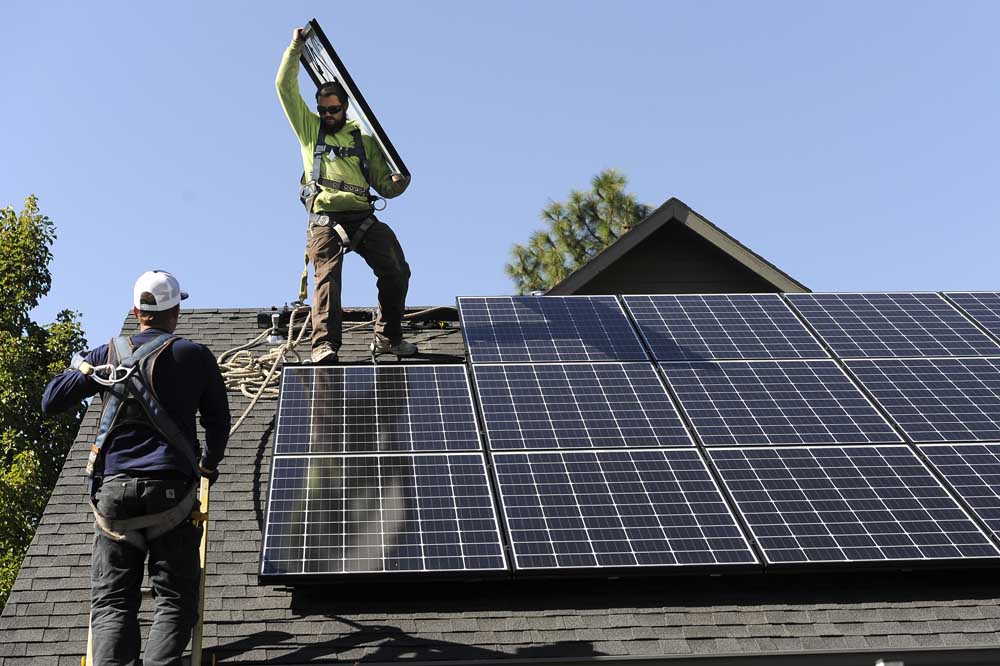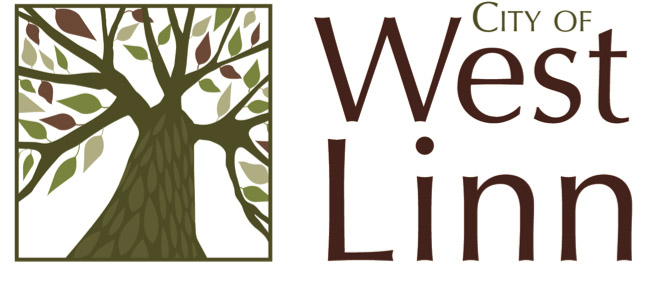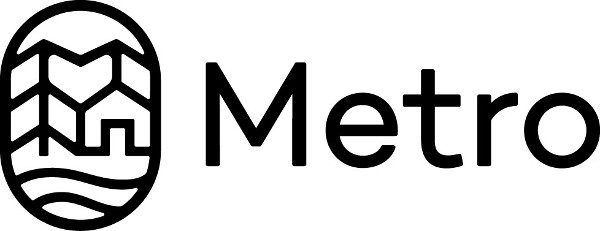Living la Vida-Coworking
Published 9:00 am Wednesday, December 20, 2023

- Members of Vida Co-working catch up during the grand opening of the company's Beaverton location.
At the beginning of 2020, the concept of co-working was all the rage, from fast-growing companies looking to dominate the national scene to smaller home-grown versions hoping to claim a niche in the local scene. Fans predicted co-working was on track to change the way people worked.
Trending
As it turns out, they were partly right. The way that people worked did indeed change. However, the shift wasn’t the result of co-working; it came courtesy of COVID-19 and the pandemic.
Melanie Marconi’s small Portland-based business, Vida Co-working, was among the co-working companies that took a hard hit during the pandemic and have since had to claw their way back to profitability. As Vida’s competitors, large and small, have struggled to recover, Marconi has heard naysayers declare that co-working is a concept whose time has passed. She isn’t convinced that’s true, however.
Marconi believes co-working still has a place in the way people work. As proof, she recently opened a second Vida location, this one in Beaverton. And, she says, she’s not done growing the company — not by a long shot.
Trending
A pandemic pause
Marconi remembers entering 2020 thinking it would be the year she took Vida Co-working to the next level.
Marconi had started the business in 2018 in a space in the historic Jantzen Swimwear Building in Northeast Portland. At the time, co-working spaces were a hot commodity among entrepreneurs who needed help to afford the high prices of office or retail space that a professional environment offered but still needed brick-and-mortar clients.
Competition was already starting to grow among co-working companies when Marconi opened Vida. However, she believed her model was unique. As a single mother to her daughter, Ellie, and an entrepreneur with a successful company that worked with nonprofits to her credit, Marconi wanted to create a place that would provide community and support, with a focus on women – especially those who were trying to multiple roles in their professional and private lives.
Women entrepreneurs apparently agreed. Private offices and dedicated desks in open areas at Vida were snapped up quickly. By the time 2020 rolled around, Vida had grown to 100 members, allowing Marconi to leave a full-time role at a company she had created before launching Vida. Along with continuing to grow Vida in Portland, she wanted to put her time and energy into opening a second location later that year.
“Things were going so great,” Marconi told Opportunity magazine. “I could see break-even a couple of months down the road. Then everything changed on March 15. A lot of things aren’t clear in my mind from that time. But that (date) is … seared in my mind.”
March 15 was the day of the state-mandated closure for businesses like Marconi’s that relied on bringing people into a space to work. The closure would last several months, leaving Marconi to get creative to keep her business — and her dream — alive.
Although Vida’s members couldn’t come to the Portland location, they were working — just at home. Marconi decided she would continue providing whatever support she could to continue supporting Vida’s members. In return, she hoped the members would continue to stick with Vida.
“I didn’t charge them their monthly rent (for their desks or offices) while we were closed. I told them, ‘If you stick with us, I’ll bring your mail to you,’” Marconi recalls. “I would Lysol the mail and leave it on people’s front doorsteps. We were doing online meditation sessions for members and online classes. Everything was on Zoom. We did coworking (sessions) together on Zoom. We hired a teacher to put together activities for kids that we would post on our website for families to use. We started a YouTube channel. Whatever I could think of. I was trying to keep that sense of community going.”
Even with those efforts, the 100 members that Vida had at the beginning of 2020 dwindled. Ultimately, a small core of about 20 stuck with Vida and Marconi. When Marconi was finally able to reopen Vida and welcome members back, albeit with required masks and strict COVID protocols to keep everyone safe, those who returned were rewarded by Marconi.
“When we reopened, we had so much space, I gave everyone … a private office.”
But even with the ability to reopen, people had become comfortable working from home. Marconi wondered how she would rebuild Vida’s membership and fill the empty co-working desks. Her experience as a single parent with a daughter whose school was closed due to COVID-19 sparked an idea that Marconi now believes was a big piece of what helped Vida survive as a business during the pandemic.
“Schools were closed, and then it was summer, and they said schools weren’t going to go back in session for the coming school year. I decided we would put together what we called Vida School.”
Marconi received an emergency designation from the state to open a certified childcare center. She hired a teacher with 10 years of early education experience as a full-time employee.
“We launched a full school program. We reopened it up to our members and to friends of members. It was really designed as a member amenity. We filled it up with 10 kids, mostly second, third and fourth graders, including my daughter.”
Marcon said that to ensure the program was legitimate, Vida School operated from 9 a.m. to 3 p.m., Monday through Friday. Each student had their own desk and laptop. The Vida teacher knew each student’s teacher at their regular school and worked with the students as they attended online school sessions. At lunchtime, the students ate lunch with their parents, who worked in Vida’s co-working space. In the afternoon, the students participated in activities the Vida School teacher organized.
“Our (co-working) community was so great,” Marconi said. “The (students) were kids, so it’s not like they were quiet. But no one minded. At Halloween, (the kids) even went trick-or-treating at all of the private offices (at Vida). We did that for the whole school year, and we did it through the summer.
“That revenue kept us afloat until co-working (membership) picked back up.”
As schools reopened, Vida School, as a regular program, went away. However, The school has returned to Vida’s new Beaverton location. In addition to providing a place for members’ kids to spend days during school vacations, such as Thanksgiving, the school reopened its doors to welcome students during the recent teacher strike in Portland. Because most of the kids who attend the school are from Portland, Marconi makes sure their parents, who usually work in the Portland location, have space in Beaverton when the school is open.
Ready to grow
As the working world in the Portland metro area began to return to a “new normal, Marconi started to work to rebuild Vida’s membership to pre-pandemic levels and beyond. While many entrepreneurs had set themselves up at home to be able to work efficiently and no longer needed a co-working desk to go to every day, many still needed a professional environment once or twice a week.
To meet that new need, Marconi adjusted how she filled offices and desks at the Portland Vida location. While she still offered weekly or monthly options to rent a dedicated desk or private office, she added new programs that allowed members to do office shares or rent a desk for a couple of days each week. She added a software program specifically designed for co-working that made it easy for members to reserve space when they needed it. She also took care of administrative tasks such as sending out monthly bills to members and tracking payments.
She also attracted companies that were downsizing their offices due to having fewer employees on-site but still wanted to provide employees with an office environment. While there was still competition among co-working companies that had survived the pandemic, Marconi had used the time since 2020 to focus more on who Vida was best suited to serve and the type of community and support it should provide.
“Some companies paid for employee memberships. We had about 75% women and 25% men. The ratio stayed about the same as before the pandemic. We attracted the people who Vida and its model were the right fit for. There were still a lot of spaces for co-working at the time. And I think that’s one thing I still feel is great about the Portland co-working scene — you can find the one that resonates with you.
With Vida membership picking back up in Portland, Marconi decided it was time to revisit her expansion plan.
“I always wanted to have multiple locations,” Marconi said. “During the pandemic, that was one of the most difficult parts for me — that we weren’t able to expand. We had to just sit tight. … But as soon as I felt stable enough, I started working on the second location.
Before the pandemic, Marconi had considered Vancouver the top choice for a second location. She decided to stick with that plan as she resumed work on expanding Vida. She found a spot in a building. Although securing funding was a challenge, as it often is for small businesses looking to grow to a second location, Marconi was able to obtain a loan. Then the deal fell through.
While Marconi was disappointed, she refused to be daunted. She jumped back into doing market research to identify alternative areas in the Portland metro area with the right demographics: a lot of families and limited competition. The one place that popped up was Beaverton.
“I did a geo hot map of families and entrepreneurs,” Marconi said. “I looked at where there weren’t many co-working spaces.”
While Beaverton already had some co-working companies in the area, she felt Vida’s model could serve an untapped niche in the city and Washington County as a whole.
“There are competitors (in Beaverton),” Marconi said, “But they’re so different from what we’re doing. We’re home-grown.”
Becoming local in Beaverton
The Vida Beaverton location on Beaverton Hillsdale Highway opened a few months ago. In many ways, the space feels like Vida’s Portland location, a deliberate move on Marconi’s part. The Vida brand – from the color schedule to the type of furniture – is consistent. Marconi also carried over the part-time private offices option, which she says has proved popular in Beaverton.
At the same time, Marconi took steps to make her newest space as local as possible by turning to local vendors to help add details and personality. The plants, for example, came from The Mercantile Plant store on the edge of Restaurant Row in Beaverton’s old downtown. The work of a local artist graces the walls. She’s also using a local company to provide tea for the Beaverton snack bar and coffee area.
Marconi knows success in Portland doesn’t necessarily mean translate as success in Beaverton. She is, to some degree, starting over with the second location to make people aware that Vida now exists as part of the Beaverton small business and co-working communities.
She’s become a familiar face at Beaverton Area Chamber of Commerce events. She’s also getting ready to join the Washington County Business Chamber. She’s opened the Beaverton location up to local groups and nonprofits that align with Vida’s values, offering them free use of the Vida conference room in the Beaverton Hillsdale building space for meetings. Forest Grove-based nonprofit Adelante Mujeres, which helps Latina and Hispanic women entrepreneurs start small businesses, has used the conference room space for meetings. There’s also a full roster of networking events at the Beaverton location, from Coffee Connection get-togethers to Happy Hour gatherings, to start building a community in Beaverton similar to the one already established in Portland.
Marconi is also committed to establishing Vida as a community leader in providing quality job opportunities for staff. Between both Vida locations, she has two employees who work alongside her: a community director in Portland and a teacher who handles the Vida School program and works at the desk in Beaverton.
The company has even reached a point where a stock program for Vida employees will go live by the end of the year. For Marconi, being able to offer the benefit is an integral part of being a good employer and standing behind one of the main reasons she started Vida in the first place — to provide a supportive community for working women.
“I think it’s amazing, and it’s meaningful because I think women, in particular, our ability to generate wealth and have those types of investment opportunities isn’t as robust as it is for men.”
With those steps in place, Marconi feels confident that Vida has a bright providing co-working opportunities in both Portland and Beaverton. She has been able to not only rebuild the Portland members to their pre-pandemic level but also nearly double it to just under 200 members. She believes Beaverton’s membership has the potential to become just as successful.
“In the co-working world, it takes 9 to 18 months to fill up a space. I think we can hit that mark (in Beaverton) in 12 months.”
Even as she keeps an eye on the new location and her finger on the pulse of Portland, she’s looking toward the future and a third location for Vida — which she thinks could open as early as next year. Her market research has already identified several areas with untapped co-working niches that she thinks would be strong candidates for Vida’s business model.
She’s also looking further down the road to a time when Vida has locations in other states, such as Northwestern Washington State or Southern California.
Those expansions, however, will require more than just finding the right geographic location. She’s trying to figure out what an expansion beyond the Portland metro area might look like. Should she go with a franchise model? Should she offer an ownership stake in each location she opens outside of Oregon?
“I’m still trying to tease that out. I may need to create my own model because (Vida) is so different from anything else that’s out there.”
Finding the right model is just part of what Marconi sees as critical for expansion success.
“The thing I’m really challenged with … is that I can’t scale myself. So much of this brand is me. I know every member in Portland, I know every member in (Beaverton). Maybe I could pull that off at a third location, but after that, I can’t.
“I need to find the right kind of person… that person who is an anchor person, a connector. The person who wants to do all the tours and do all the sales. It’s a really critical piece.”
Marconi isn’t going it alone as she works on finding a solution. She’s tapping the skills and expertise of others she trusts, including Vida’s board members, who Marconi describes as “awesome.”
With so much on her plate, her role as a single mom to her daughter and planning the next steps for her business can sometimes be all-consuming for Marconi. That’s when her family and friends ride to the rescue, reminding her to take a few steps back, look around, and appreciate what she’s already created. When she does, she likes what she sees.
“It’s been four years (since I started Vida), and it hasn’t been very easy for most of them,” Marconi says. “But I really love what I’ve built, even more than when I started.”
Founder: Melanie Marconi
Address — Portland: 410 N.E. 19th Ave., #200
Phone — Portland: 503-803-4940
Address — Beaverton: 9400 S.W. Beaverton Hillsdale Highway, #250
Phone — Beaverton: 503-705-1591
Website: vidacoworking.com
Email: hello@vidacoworking.com
Instagram: @vida_coworking
Facebook: @Vida Coworking
LinkedIn: https://{&hyper}www.linkedin.com/company/vidacoworking/
The pandemic posed challenges for Melanie Marconi and her company, Vida Co-working. However, figuring out how to overcome those hurdles provided her with some valuable lessons that she feels have helped her gain experience and become a successful small business owner who is now ready to take Vida to the next level.
“I think that’s how I refined how to sell what we’re doing and how to be creative with outreach,” Marconi told Opportunity magazine. “Before (the pandemic), people were really coming to us. We had that sparkly new kind of thing. Then that promptly ended, and I had to get really clever on a really tight budget. I learned most of that during that time: How to market ourselves. Where to find our target customers. That has been super helpful here (in Beaverton).”
Another lesson from the pandemic that’s come in handy for Marconi was recognizing and clearly defining and identifying the niche that Vida fills.
“I think it was recognizing our lane: who we’re serving and why we’re doing it and how we’re of help to them. I knew that, theoretically, but it became really apparent. We are who we are. We know who we are now. Doubling down on that, making sure that’s what we’re sharing, that has been really clear. “
Marconi also realized the importance of creating multiple revenue streams to create resilience.
“I realized we had to diversify a little bit. We were only doing co-working as the main revenue, so we added the Vida School and started legitimately charging for it. We started Vida Cafe, which does a decent amount of revenue with meals and snacks. We launched Vida business services, which is administrative support for members. We launched a coaching service. Individually, they’re not significant revenue streams. But if co-working ramps down, we can ramp those up. We developed resilience. We had to – because it was tough going for a while.”







